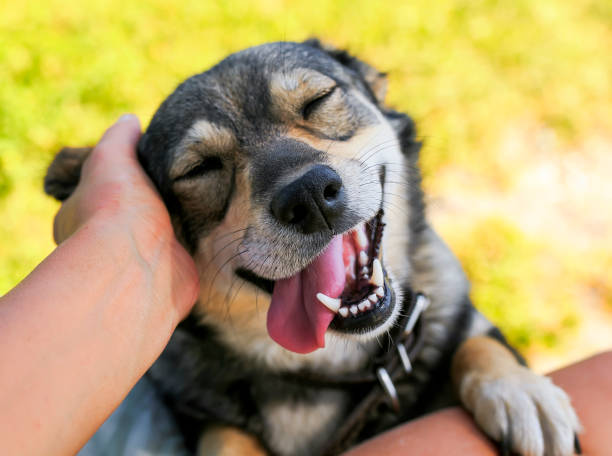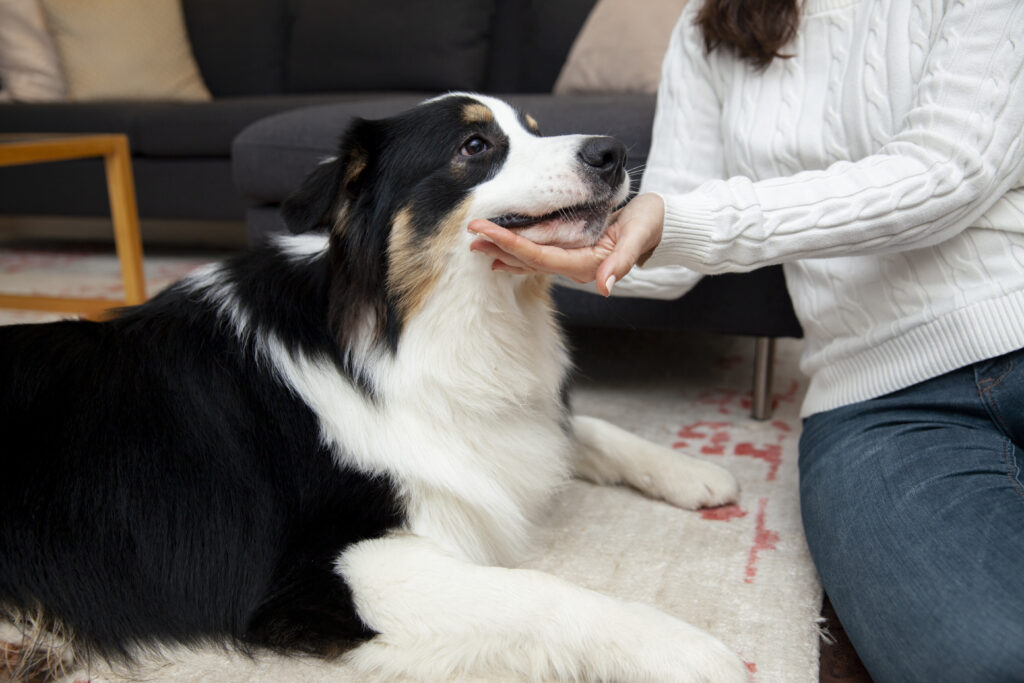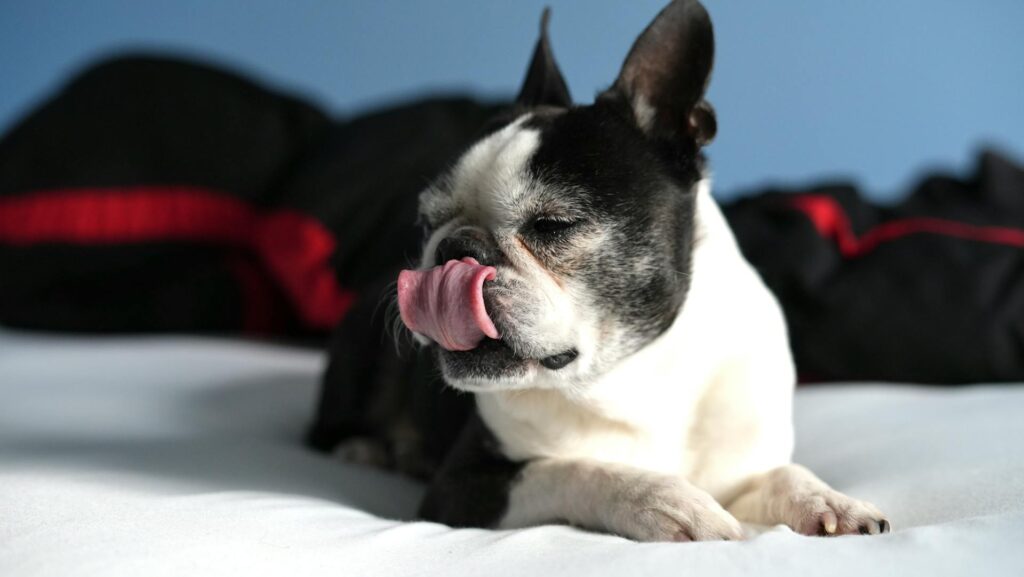
We all love those sloppy puppy kisses! Licking is a natural canine behavior used for grooming, communication, and affection. But sometimes, excessive licking can be a sign of an underlying issue. If your furry friend seems to be licking themselves, furniture, or you non-stop, it’s time to become a doggy detective and figure out the “why” behind the licks.
This article will be your guide to understanding why dogs lick excessively. We’ll explore ten common reasons for this behavior, how to identify the cause, and some tips for helping your pup ditch the excessive tongue bath.
Here are some key questions we’ll answer:
- Is my dog’s licking normal, or is it a cause for concern?
- What are the different reasons why dogs lick excessively?
- How can I tell what’s causing my dog’s excessive licking?
- What can I do to help my dog lick less?
- When should I see a veterinarian?
So, grab your favorite chew toy, cuddle up with your pup, and let’s get started on uncovering the mystery behind the excessive licks!
Beyond Affection: Unveiling 10 Reasons Why Dogs Lick
Excessively
While a lick or two is perfectly normal, constant licking can indicate a problem. Here are ten reasons why your dog might be licking themselves, you, or their surroundings excessively:
Also Read: 10 Common Pet Behavior Problems and Solutions: Decoding Your Furry Friend
Medical Issues:
Sometimes, excessive licking can be a sign of an underlying medical condition. This could include allergies, skin irritation, infections, dental problems, or even gastrointestinal issues.
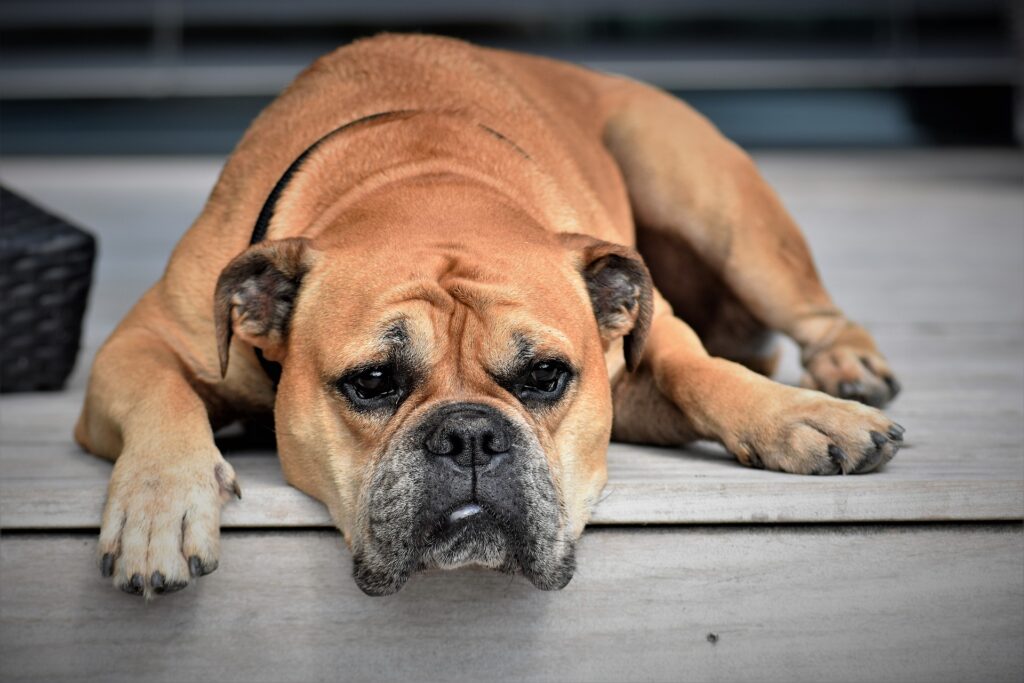

Boredom and Anxiety:
Just like humans, dogs can get bored or anxious. Licking can be a self-soothing behavior for some pups, a way to cope with stress or lack of stimulation.
Obsessive Compulsive Disorder (OCD):
Yes, dogs can suffer from OCD too! Excessive licking can be a compulsive behavior in some dogs, similar to humans who might bite their nails or twirl their hair when anxious.
Also Read: 05 Major Reasons Why Does My Dog Walk Behind Me? A Comprehensive Guide
Seeking Attention:
Let’s face it, some dogs are master manipulators! If your dog has learned that licking gets them attention, even negative attention like scolding, they might continue to lick excessively to get a reaction.
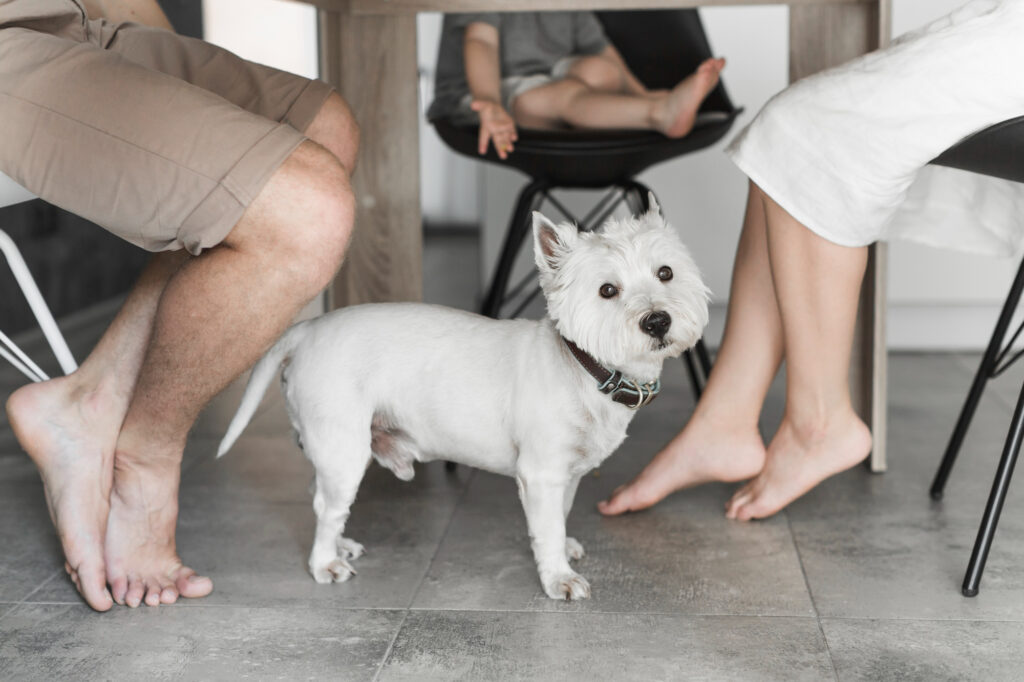

Healing Wounds:
Dogs instinctively lick wounds to clean and soothe them. While some licking is helpful for healing, excessive licking can slow healing and even lead to infection.
Nausea:
Licking can sometimes be a sign of nausea or stomach upset in dogs. Other symptoms like vomiting, diarrhea, or loss of appetite might also be present.
Dietary Issues:
Some dogs might lick excessively due to dietary intolerances or deficiencies. Talk to your veterinarian about whether your dog’s food could be contributing to the licking.
Arthritis or Pain:
If your dog is licking a specific area of their body excessively, it could be a sign of pain or discomfort from arthritis or another condition.
Hormonal Imbalances:
Hormonal changes, especially in young puppies or unneutered/unspayed dogs, can sometimes lead to excessive licking.
Environmental Allergies:
Just like humans, dogs can suffer from allergies to pollen, dust mites, or other environmental triggers. Excessive licking of paws or other areas might be a sign of an allergic reaction.
The Great Lick Detective: Identifying the Culprit
Now that you know some of the reasons behind excessive licking, how do you figure out what’s causing your dog’s behavior? Here are some clues to consider:
- What is your dog licking? Are they licking themselves, furniture, objects, or the air? This can provide some hints about the cause. For example, licking paws might indicate allergies, while licking furniture could be a sign of boredom or anxiety.
- When does the licking occur? Does your dog lick more during stressful situations, after eating, or at certain times of the day? Identifying patterns can help narrow down the cause.
- Are there any other symptoms? Is the licking accompanied by itching, redness, vomiting, or other signs of illness? This can be crucial information for your veterinarian.
- Consider your dog’s history: Has there been any recent change in diet, environment, or routine that might be causing your dog stress or anxiety?
Calming the Licks: Tips for a Less-Lick-Happy Pup
If your dog is licking excessively, the first step is to see your veterinarian to rule out any underlying medical conditions. Once medical causes are addressed, here are some tips that might help:
- Address boredom and anxiety: Provide your dog with plenty of mental and physical stimulation. Regular walks, playtime, and interactive toys can help keep them occupied and reduce boredom-related licking.
- Don’t give attention for licking: If your dog licks you to get attention, even if it’s to scold them, they might see it as a reward and continue licking. Instead, ignore unwanted licking and praise them for calm behavior.
- Offer chewing alternatives: Chewing can be a great way for dogs to relieve boredom and anxiety. Provide your pup with safe and long-lasting chew toys to redirect their licking urges.
- Create a relaxing environment: If your dog seems to lick more during stressful situations, try creating a calm and quiet space for them to relax. Use calming music, pheromone sprays, or anxiety wraps to help them feel more comfortable.
- Desensitize triggers: If your dog licks due to environmental allergies, try to identify and desensitize them to the triggers. Talk to your veterinarian about allergy management strategies.
- Keep your dog’s environment clean: Regularly wipe down surfaces and wash bedding to remove allergens or irritants that might be triggering licking.
- Maintain a healthy diet: Talk to your veterinarian about whether your dog’s food could be contributing to their licking. A balanced diet with essential nutrients can promote good skin health and overall well-being.
When to See a Vet: Don’t Wait for the Licking to Stop!
If your dog’s excessive licking doesn’t improve with home remedies, or if you notice any other concerning symptoms, it’s important to see your veterinarian. Early diagnosis and treatment of any underlying medical conditions can help prevent further problems.
Here are some signs that warrant a trip to the vet:
- The licking is causing hair loss, redness, or sores on your dog’s skin.
- Your dog is licking excessively along with vomiting, diarrhea, or loss of appetite.
- Your dog seems lethargic, depressed, or in pain.
- The licking is a new behavior, especially in an older dog.
Living a Lick-Free Life: Building a Happy and Healthy Bond with Your Dog
By understanding the reasons behind excessive licking and taking steps to address the underlying cause, you can help your furry friend ditch the constant tongue bath and live a happier, healthier life. Remember, communication is key! Pay attention to your dog’s behavior and consult your veterinarian if you have any concerns.
With a little patience, love, and some detective work, you can build a strong bond with your dog and create a lick-free environment where everyone can relax and enjoy each other’s company.
Additional Resources for the Lick-Curious Canine Companion
Here are some additional resources that you might find helpful on your journey to becoming a doggy lick detective:
- The American Kennel Club (AKC): https://www.thesprucepets.com/why-do-dogs-lick-people-1118300 The AKC website has a helpful article on what it means when a dog licks.
- The Spruce Pets: https://www.sprucepup.com/collections/mens-apparel This website has an article on common reasons why dogs lick their paws.
- The Association of Professional Dog Trainers (APDT): https://apdt.com/ The APDT website can help you find a certified professional dog trainer who can help you address your dog’s licking behavior.
Remember, a happy dog is a less-licky dog! By understanding your dog’s needs and addressing any underlying issues, you can create a lasting bond built on love, trust, and maybe just a few occasional doggy kisses.
10 Reasons Why Dogs Lick Excessively: FAQs
Understanding why your dog licks excessively can be a challenge, but fear not! This FAQ section will provide answers to ten frequently asked questions to help you decipher your pup’s excessive tongue bath:
- Is a little licking normal, or should I be worried?
A few licks here and there are perfectly normal canine behavior. Licking helps dogs groom themselves, explore their environment, and bond with you. However, if your dog’s licking becomes constant, obsessive, or causes sores or hair loss, it’s a good idea to investigate further.
- My dog licks their paws all the time. What could that mean?
Paw licking can be a sign of allergies (environmental or food), dry skin, irritation from something they stepped on, or even boredom. It’s important to look for other symptoms like redness, swelling, or limping to help determine the cause.
- My dog licks the air a lot. Is that weird?
Licking the air can sometimes be a sign of nausea, dental problems, or even neurological issues. If your dog is also vomiting, seems lethargic, or has trouble eating, consult your veterinarian right away.
- My dog licks furniture constantly. Why are they doing that?
Furniture licking could be a sign of boredom, anxiety, or even a compulsive behavior. Make sure your dog has plenty of stimulating toys and activities to redirect their licking urges.
- I think my dog licks me because they love me. Isn’t that a good thing?
While licking can be a sign of affection, it can also be a learned behavior to get attention. If your dog only licks you when they want something, try to ignore unwanted licking and praise them for calmer greetings.
- My puppy licks their stitches after surgery. Should I stop them?
Excessive licking of wounds can slow healing and increase the risk of infection. Talk to your veterinarian about using an Elizabethan collar (cone) to prevent your pup from licking their stitches while they heal.
- I recently changed my dog’s food, and now they lick themselves more. Could that be why?
Yes, dietary intolerances or deficiencies can sometimes lead to excessive licking. If you suspect your dog’s food might be contributing to the licking, consult your veterinarian about possible food allergies or sensitivities.
- My dog is getting older and licking themselves more often. Is this a sign of something serious?
Increased licking in older dogs could be a sign of pain or discomfort from arthritis, or other age-related conditions. A veterinarian can help diagnose the cause and recommend appropriate treatment options.
- My dog licks my face after I eat. Are they just hungry?
Not necessarily! Licking can be a way for dogs to communicate and bond. However, consistent face licking after you eat might be a habit you don’t want to encourage. Try distracting your dog with a chew toy or redirecting their attention with a command.
- I’ve tried everything, but my dog won’t stop licking! What should I do?
If you’ve tried home remedies and your dog’s excessive licking persists, consult your veterinarian. They can rule out any underlying medical conditions and provide guidance on behavior modification techniques or medication if needed.
